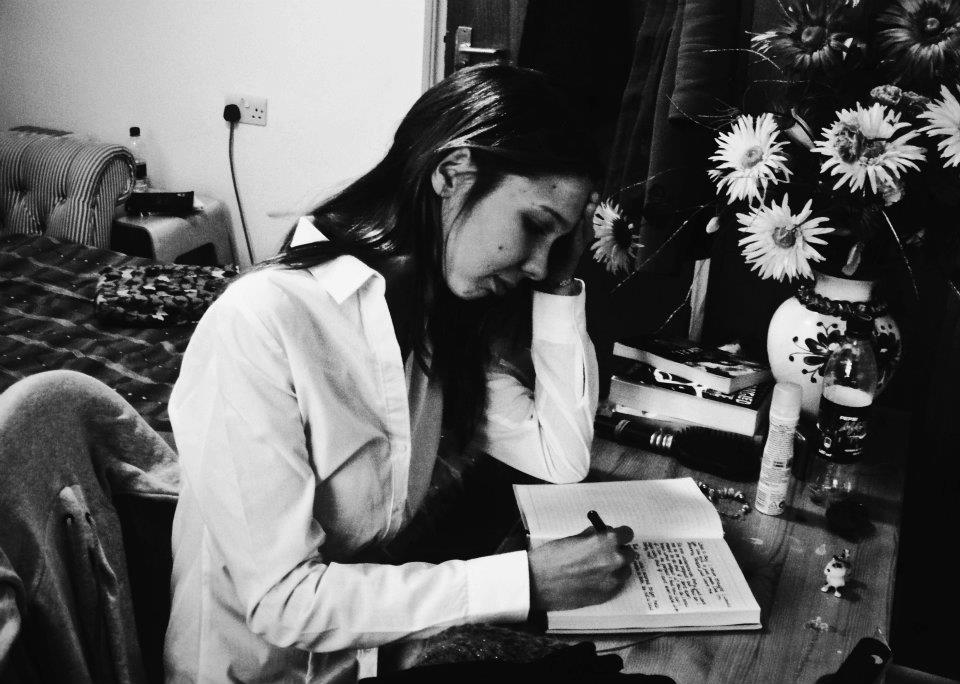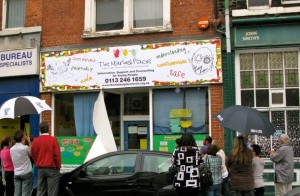
Hooray, it’s Christmas! Yes, the season to be jolly is upon us once again. But that’s OK because everyone loves Christmas, right? Well, I’m not a fan and I know I won’t be the only one shunning the Christmas cheer, preferring instead to hide away with old Ebenezer Scrooge until the tinsel is put away and a new year begins.
This Christmas will be a difficult time for many people, even more so for those with mental health problems. Our society expects a lot from us at Christmas; shops, TV, advertisements and jolly newsreaders perpetuate the myth that we all have to be happy simply because it’s ‘that time of year’.
Being unwell at Christmas as a result of a mental health problem is rarely spoken about since the expectation is that everyone ought to be enjoying themselves; quaffing wine, eating too much and watching the Eastenders Christmas special. Knowing that people are suicidal or spending Christmas locked up in a psychiatric ward distorts this myth and exposes the reality of what Christmas is like for many of us.
Why aren’t you happy? It’s Christmas!
Telling people to ‘get a grip’ or ‘pull themselves together’ doesn’t help, ever, but especially not at Christmas when people are no doubt already chastising themselves for not being in the Christmas spirit and feeling like they are letting friends/family down. If this was possible there would be no such illness as depression, nor any other mental health problem. Making someone feel guilty over how they’re not feeling helps no one.
Having a mental health problem is a lonely experience and can make you feel like an outsider. It can be difficult to find people who ‘get it’ and are willing to listen, especially at Christmas when most people would rather be thinking about what presents they are going to buy.
It becomes less acceptable for people to speak honestly because we’re all supposed to so happy. People are more likely to keep quiet about how they are feeling at Christmas because of the pressure to be positive and have everything ‘perfect’ for the day itself. This quest for perfection can be dangerous because it is unattainable and doesn’t allow for people to let others know they are struggling.
Between Christmas and the New Year the usual support systems that people rely on aren’t available. Mental health services close during this period and on Christmas Day itself even places like coffee shops are closed. This may seem like a trivial complaint to some but when you rely on little things to help you get through the day – such as being able to go out each day and sit in the local coffee shop – not having the opportunity to do this can make it more difficult to cope with existing mental health problems and the stress of Christmas.
The disruption to regular appointments with a mental health service can make it difficult for people to know where to turn if things get tough over Christmas. Thankfully there are helplines available, such as the Samaritans, which do a fantastic job supporting people over the holidays. Generally people are told to go to A&E if they are struggling with a mental health problem in lieu of other mental health services being closed, but as you can imagine going into that environment when you’re in emotional distress can be inappropriate and frightening.
A great service in Leeds which offers face to face and telephone support for people experiencing a mental health crisis is the Leeds Survivor Led Crisis Service. Set up by people with direct experience of mental ill health they will be open Christmas Day and throughout the holiday season, providing an alternative to A&E and helping prevent hospital admissions with their helpline and crisis house.
It would be great if more of these services were available to people across the country, particularly at Christmas when many have nowhere else to turn.
* Project supports care-leavers at Christmas, writes Saba Salman
“Christmas conjures up thoughts of a big massive dinner, presents, fun… and then I think about so many young people who don’t have that. For me it’s really important that young people, especially the most vulnerable, have a good Christmas.” These are the words of youth worker Shalyce Lawrence, 24, who was in care for 10 years and who, along with several peers, has launched a project to support young care-leavers who are alone at Christmas.
Shalyce and a group of volunteers in their 20s have created the Topé Project, in memory of a 23-year-old care-leaver, Topé, who took his life several years ago. The scheme’s launch event, Christmas in the Crypt, is a Christmas Day celebration in London for 70 care-leavers from across the capital. Organisations supporting the scheme include the charity Crisis and five London councils, and the group has also been gathering donations to fund the drive.
The aim of the scheme is to create an “atmosphere of belonging”, positive memories and to help young people form constructive relationships. Young people in care are not supported by social services after the age of 18, unless they are in education and based on 2011 figures, as the project points out, 44% of 19-year-old care leavers in London were living in independent accommodation.
Shalyce adds: “It doesn’t mean you are going to be affected by suicidal thoughts just because you have been in care, you can be anyone and go through that. Think about how you can support the people around you, so it doesn’t have to happen to you.”
Read more about the project on The Independent website, find out more via email thetopeproject@gmail.com Twitter: @thetopeproject or on Facebook.




